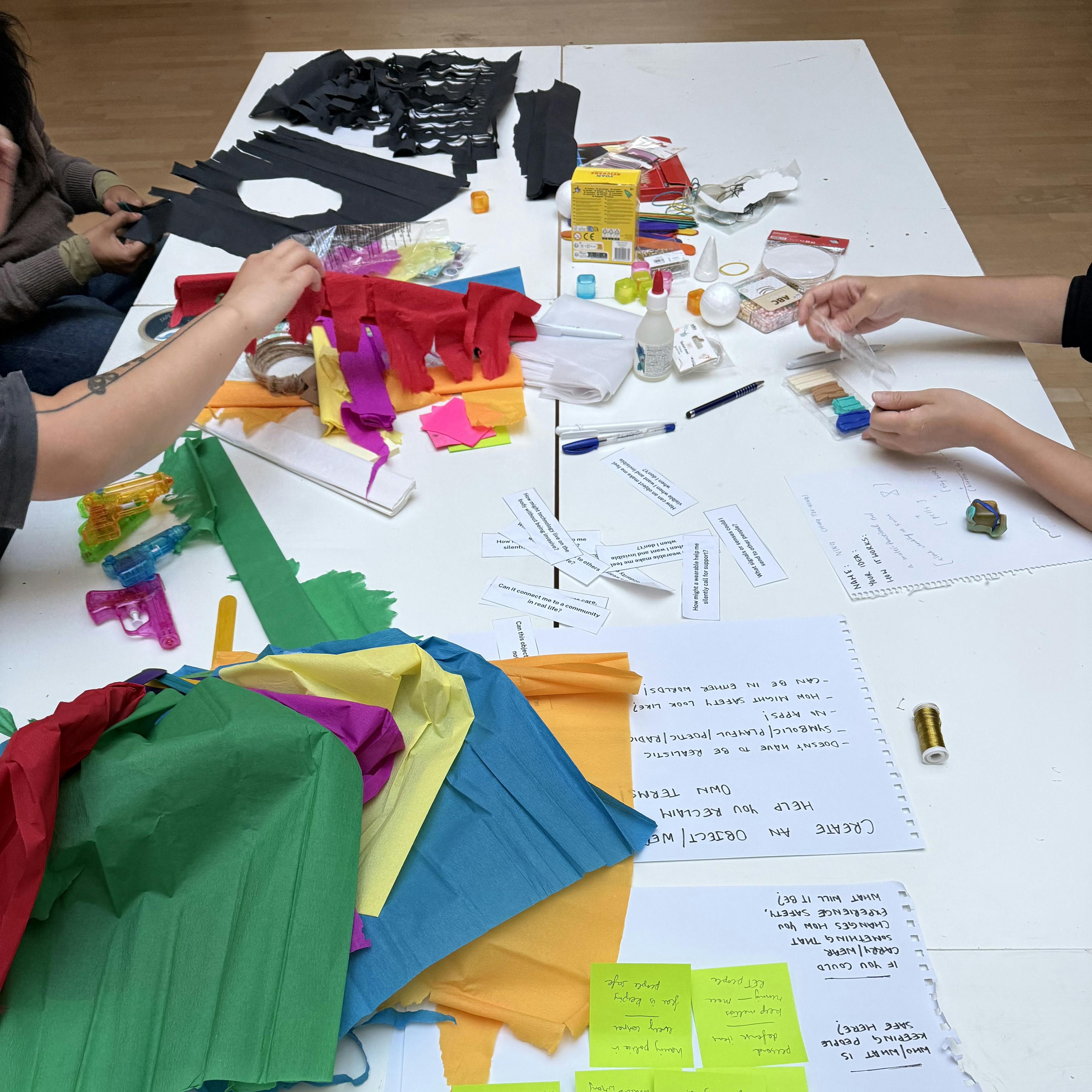
Woven Streets
by Shruthi Venkat
10 october
In Rotterdam, 47% of women face street harassment, yet the city's response has been to expand surveillance infrastructure instead of proactive actions. Woven Streets challenges the dominant narrative that safety comes through monitoring and control. This participatory design project asks: What does safety look like when it's rooted in care, autonomy, and community?
Woven Streets explores how communities can reclaim their sense of safety through anti-surveillance wearable technology and collective imagination. Through hands-on workshops, participants shared their lived experiences of navigating Rotterdam's public spaces and collectively reimagined what protection could mean. The project centres on co-creating speculative wearable technologies that resist surveillance while fostering networks of care. Participants built low-tech, rough, but provocative prototypes that spark conversation about agency, privacy, and community-centered safety.
Through guided prompts and mapping exercises, the session moved from conversation to creating. Participants documented their experiences while envisioning futures where technology serves people, not power structures. These objects are poetic, playful, and radical- each one a tangible future that challenges how we think about safety. Beyond making, the project included self-defense workshops, offering participants physical tools for confidence and empowerment. By combining imagination, crafting, and self-defense, Woven Streets provided a holistic approach to safety and technology.
Woven Streets ultimately invites Rotterdam residents to become active agents in designing their own safety rather than depending on systems that watch from above. Each prototype is a small step toward reclaiming safety on our own terms.